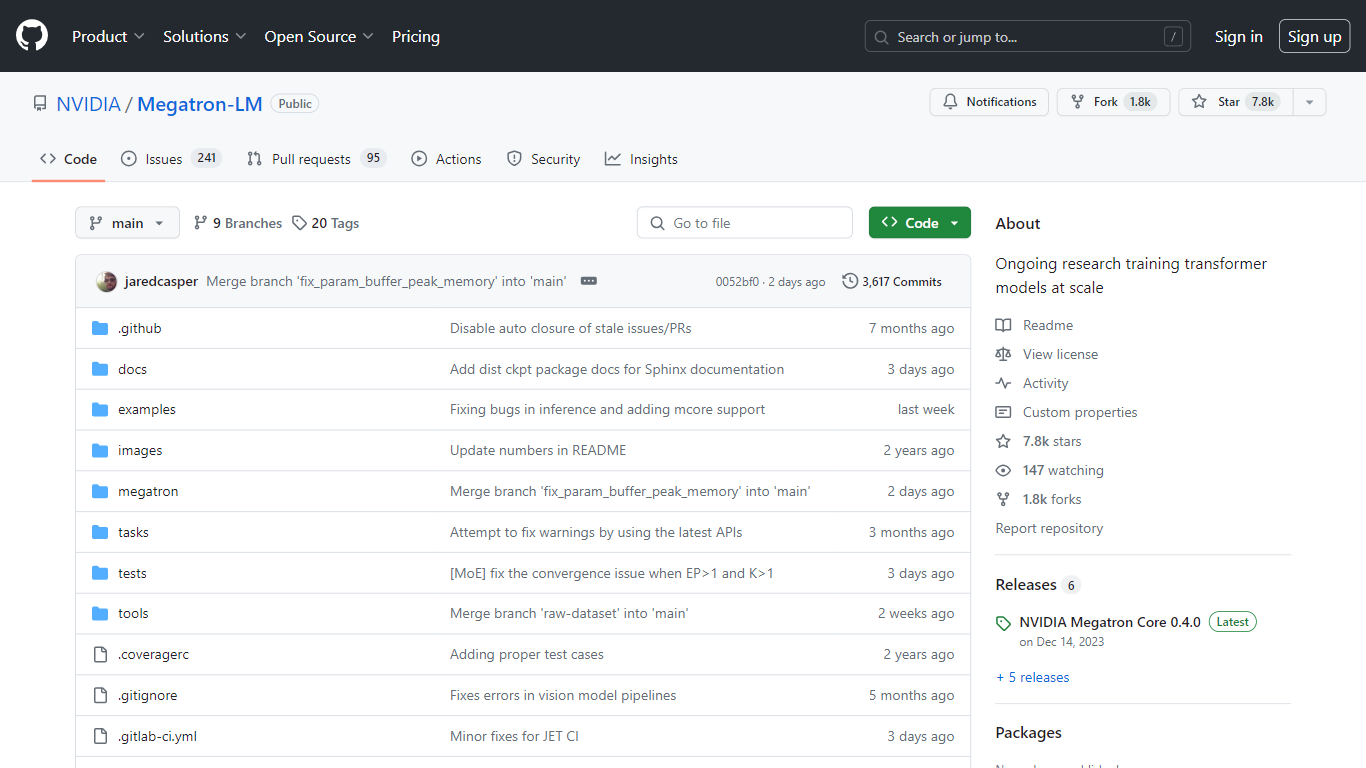Megatron-LM vs ggml.ai
Compare Megatron-LM vs ggml.ai and see which AI Large Language Model (LLM) tool is better when we compare features, reviews, pricing, alternatives, upvotes, etc.
Which one is better? Megatron-LM or ggml.ai?
When we compare Megatron-LM with ggml.ai, which are both AI-powered large language model (llm) tools, Interestingly, both tools have managed to secure the same number of upvotes. Every vote counts! Cast yours and contribute to the decision of the winner.
Not your cup of tea? Upvote your preferred tool and stir things up!
Megatron-LM

What is Megatron-LM?
NVIDIA's Megatron-LM repository on GitHub offers cutting-edge research and development for training transformer models on a massive scale. It represents the forefront of NVIDIA’s efforts in training large-scale language models with a focus on efficient, model-parallel, and multi-node pre-training methods, utilizing mixed precision for models such as GPT, BERT, and T5. The repository, open to the public, serves as a hub for sharing the advancements made by NVIDIA's Applied Deep Learning Research team and facilitates collaboration on expansive language model training.
With tools provided in this repository, developers and researchers can explore training transformer models with sizes ranging from billions to trillions of parameters, maximizing both model and hardware FLOPs utilization. Notably, the Megatron-LM's sophisticated training techniques have been used in a broad range of projects, from biomedical language models to large-scale generative dialog modeling, highlighting its versatility and robust application in the field of AI and machine learning.
ggml.ai

What is ggml.ai?
ggml.ai is at the forefront of AI technology, bringing powerful machine learning capabilities directly to the edge with its innovative tensor library. Built for large model support and high performance on common hardware platforms, ggml.ai enables developers to implement advanced AI algorithms without the need for specialized equipment. The platform, written in the efficient C programming language, offers 16-bit float and integer quantization support, along with automatic differentiation and various built-in optimization algorithms like ADAM and L-BFGS. It boasts optimized performance for Apple Silicon and leverages AVX/AVX2 intrinsics on x86 architectures. Web-based applications can also exploit its capabilities via WebAssembly and WASM SIMD support. With its zero runtime memory allocations and absence of third-party dependencies, ggml.ai presents a minimal and efficient solution for on-device inference.
Projects like whisper.cpp and llama.cpp demonstrate the high-performance inference capabilities of ggml.ai, with whisper.cpp providing speech-to-text solutions and llama.cpp focusing on efficient inference of Meta's LLaMA large language model. Moreover, the company welcomes contributions to its codebase and supports an open-core development model through the MIT license. As ggml.ai continues to expand, it seeks talented full-time developers with a shared vision for on-device inference to join their team.
Designed to push the envelope of AI at the edge, ggml.ai is a testament to the spirit of play and innovation in the AI community.
Megatron-LM Upvotes
ggml.ai Upvotes
Megatron-LM Top Features
Large-Scale Training: Efficient model training for large transformer models, including GPT, BERT, and T5.
Model Parallelism: Model-parallel training methods such as tensor, sequence, and pipeline parallelism.
Mixed Precision: Use of mixed precision for efficient training and maximized utilization of computational resources.
Versatile Application: Demonstrated use in a wide range of projects and research advancements in natural language processing.
Benchmark Scaling Studies: Performance scaling results up to 1 trillion parameters, utilizing NVIDIA's Selene supercomputer and A100 GPUs for training.
ggml.ai Top Features
Written in C: Ensures high performance and compatibility across a range of platforms.
Optimization for Apple Silicon: Delivers efficient processing and lower latency on Apple devices.
Support for WebAssembly and WASM SIMD: Facilitates web applications to utilize machine learning capabilities.
No Third-Party Dependencies: Makes for an uncluttered codebase and convenient deployment.
Guided Language Output Support: Enhances human-computer interaction with more intuitive AI-generated responses.
Megatron-LM Category
- Large Language Model (LLM)
ggml.ai Category
- Large Language Model (LLM)
Megatron-LM Pricing Type
- Freemium
ggml.ai Pricing Type
- Freemium
